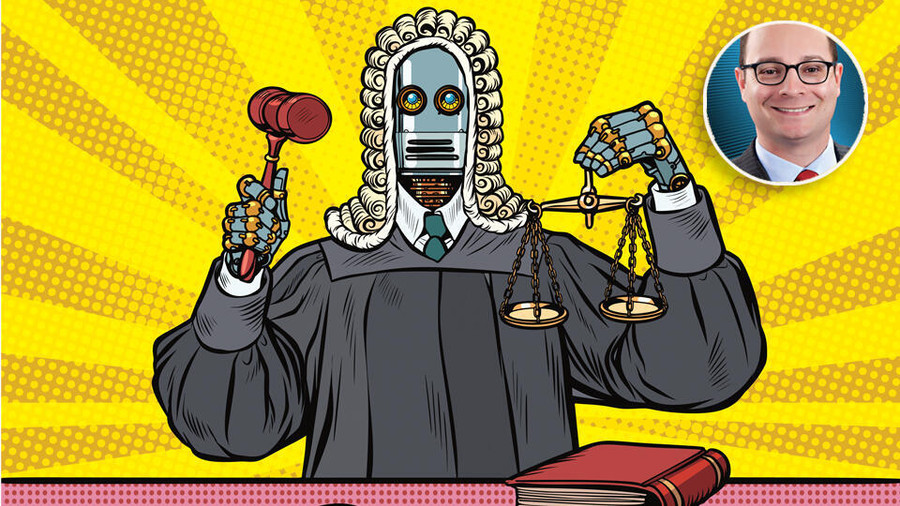In today’s digital age, content producers have more tools at their disposal than ever before. Among these tools, artificial intelligence (AI) content generation has emerged as a game changer, enabling creators to produce high-quality content quickly and efficiently. However, with this convenience comes a significant new challenge: safeguarding the rights associated with AI-generated content.
AI content generation rights are the ownership and usage rights that apply to content produced with the assistance of AI tools. Failing to protect those rights can have long-term repercussions for creators and their intellectual property. Let’s examine some key legal considerations that creators should be aware of when utilizing AI to generate content.
Many AI tools operate under specific licensing terms, which may grant the tool’s developer partial or full rights to the generated content.
Why Content Producers Need to Be Vigilant
Failure to protect AI content generation rights can lead to a number of issues. Among them:
- Potential loss of ownership: Job one is determining who legally owns the output created by AI — an individual, company or AI tool provider. Many AI tools operate under specific licensing terms, which may grant the tool’s developer partial or full rights to the generated content. For instance, a platform might claim co-ownership or the right to redistribute or resell the generated content. This could dilute a content producer’s ability to control or monetize their work fully. It could also do the same for derivative works, if the terms of use prohibit content created with AI from being modified, reused or resold.
- Legal and ethical implications: Using AI tools without fully understanding the associated rights can lead to legal disputes or ethical dilemmas. For example, if a content producer unknowingly uses an AI tool that generates content based on copyrighted material, they could face potential lawsuits. Further, AI tools typically have strong legal terms to protect them from liability for claims brought against you as a creator. Don’t depend on the AI tools or their terms to indemnify you.
- FTC concerns: The Federal Trade Commission (FTC) has been actively monitoring and addressing issues related to AI-generated content. The FTC focuses on preventing deceptive practices, ensuring transparency and protecting consumer rights. In that regard, it has issued guidelines emphasizing the need for transparent disclosure when AI-generated content is used, particularly in advertising, endorsements and content that could mislead consumers. These guidelines are found on the FTC’s official website, particularly in the business guidance and AI technologies sections.
- Reputational risk: Content producers risk damaging their reputations if it becomes public that their work is not entirely original or if they inadvertently violate copyright laws. Transparency about the use of AI tools is therefore becoming increasingly important in creative industries.
- Exclusivity concerns: If an AI tool’s terms of service allow the tool provider to resell or redistribute generated content, the uniqueness of the content is compromised. This could be particularly problematic for creators producing exclusive content for clients or subscribers. AI tools’ terms of service are quite complex, and you should not agree to them until you fully understand the rights and obligations to which you will become legally bound. An attorney can help you comprehend what you are getting yourself into.
Best Practices for Protecting AI Content Rights
- Read the TOS carefully: Before using any AI content generation tool, thoroughly review its terms of service and licensing agreements. Look for clauses related to ownership, redistribution and usage rights. If you don’t understand any portion of the terms of service, do not proceed. Seek further clarification or legal advice.
- Only choose tools with clear ownership policies: Choose AI platforms that explicitly grant users full ownership of generated content. Many premium tools offer such assurances to attract professional content creators.
- Maintain a hybrid workflow: Combine AI-generated content with your own unique inputs to retain greater control over the final product. This approach reduces reliance on AI tools and adds a personal touch.
- Document your workflow: Keep records of the tools and processes used in content creation. This can help establish ownership and demonstrate originality if disputes arise.
- Consult legal experts: For content producers working on high-value projects, consulting an intellectual property attorney can help clarify rights and ensure compliance with applicable laws.
The Future of AI Content Rights
As AI technology evolves, so will the legal frameworks governing its use. To protect their interests, content producers must stay informed about changes in laws and industry standards. Collaboration between creators, legal experts and AI developers will be crucial in shaping a fair and transparent ecosystem.
By understanding and protecting their rights, creators can leverage AI tools effectively while safeguarding their intellectual property. In an era where digital content is both abundant and valuable, vigilance is not just advisable — it’s essential.
This article does not constitute legal advice and is provided for your information only. It should not be relied upon in lieu of consultation with legal advisors in your own jurisdiction. It may not be current as the laws in this area change frequently. Transmission of the information contained in this article is not intended to create, and the receipt does not constitute, an attorney-client relationship between sender and receiver.
Corey D. Silverstein is the managing and founding member of Silverstein Legal. His practice focuses on representing all areas of the adult industry and his clientele includes hosting companies, affiliate programs, content producers, processors, designers, developers, operators and more. He is licensed in numerous jurisdictions including Michigan, Arizona, the District of Columbia, Georgia and New York. Contact him via MyAdultAttorney.com, corey@silversteinlegal.com or 248-290-0655.








